Particle Physics

Nausheen Shah (Wayne State University)
Professor Shah is a theoretical physicist investigating elementary particles and fundamental forces. She is heavily involved in studying new phenomena that may be observed at the Large Hadron Collider at CERN if there exists a fundamental symmetry in nature called Supersymmetery, concentrating on possible connection between Higgs physics and Dark Matter.
CMMS

Rustem Khasanov (University of Zurich & PSI)
Rustem Khasanov received his Ph.D from the University of Zurich in 2003 for his studies of the oxygen isotope effect on the magnetic penetration depth in cuprate superconductors. He has been employed at the Paul Scherrer Institute since 2008 where he develops uSR instrumentation and high-pressure techniques with applications in muon spin rotation / relaxation studies.
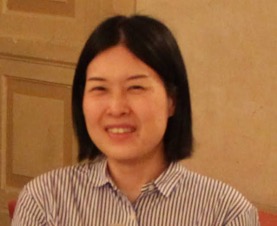
Izumi Umegaki (KEK)
Izumi Umegaki earned her Ph.D from Tokyo Institute of Technology in 2012. Then she became a researcher at Toyota CRDL working with Dr. Jun Sugiyama for muSR on battery materials to investigate their Li diffusions. She visited TRIUMF for muSR and beta NMR experiments over ten times as a frequent visitor scientist. She is now an assistant professor at KEK, Japan, and is responsible for an experimental area called D2, the decay muon beam line, in J-PARC. She has been collaborating on operando measurements of Li-ion batteries and mu-minus SR measurements to confirm ion diffusion. She is also leading projects of elemental analysis with muonic x-rays. Her main theme has been elemental analysis with muonic x-rays on Li-ion batteries and recently she is trying to establish an imaging technique of muonic x-rays from Li, collaborating with other universities and institutes.
Nuclear Physics
.jpg)
Nicole Vassh (TRIUMF)
Dr. Nicole Vassh received her Bachelors in Physics with a minor in Philosophy from the University of Wisconsin-Parkside, followed by a PhD in theoretical neutrino physics under Prof. Baha Balantekin at the University of Wisconsin-Madison, where her thesis focused on the effects of neutrino magnetic moment in low-energy experiments and astrophysics. She then went on to a postdoc working on r-process nucleosynthesis with Prof. Rebecca Surman at the University of Notre Dame, where her research included investigations of the role of fission in astrophysical events as well as the application of statistical methods to nucleosynthesis observables. She joined the Canadian physics community one year ago in 2021 with a research staff position in the Theory Department at TRIUMF.
.png)
Louis Wagner (TRIUMF)
I received my PhD from the Technical University Dresden, Germany for cross section measurements of fusion reactions governing the CNO cycle in the sun. After a 3 year postdoc at FRIB working on transfer reactions for X-ray bursts, I'm currently working at TRIUMF as a postdoc for the mass spectrometer EMMA and the recoil separator DRAGON. Both are great tools to continue my research on X-ray bursts and other explosive stellar environments.
Life Sciences
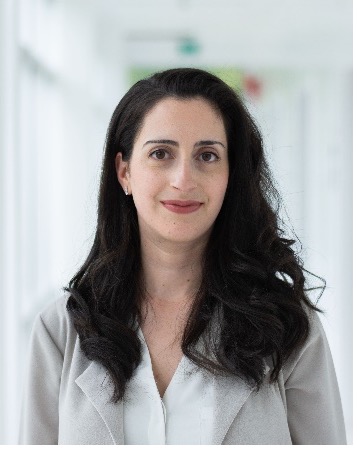
Caterina F. Ramogida (SFU / TRIUMF)
Dr. Ramogida is an Assistant Professor at Simon Fraser University and holds a joint appointment with TRIUMF’s Life Sciences Division. Her biomedical research program is focused on nuclear medicinal inorganic chemistry. This includes the design, synthesis, and characterization of bifunctional chelating ligands for exotic therapeutic and diagnostic radiometals, the production and purification of medically relevant radiometals, and the design, synthesis, and evaluation of multi-modal scaffolds for theranostic applications. She currently serves as a Director on the Board of the International Society for Radiopharmaceutical Sciences and has supervised 3 MSc, 5 PhD, 6 BSc research students and 3 PDFs. Her research is supported by NSERC, CIHR, NFRF, Mitacs, and Canadian Cancer Society.
Science & Technology
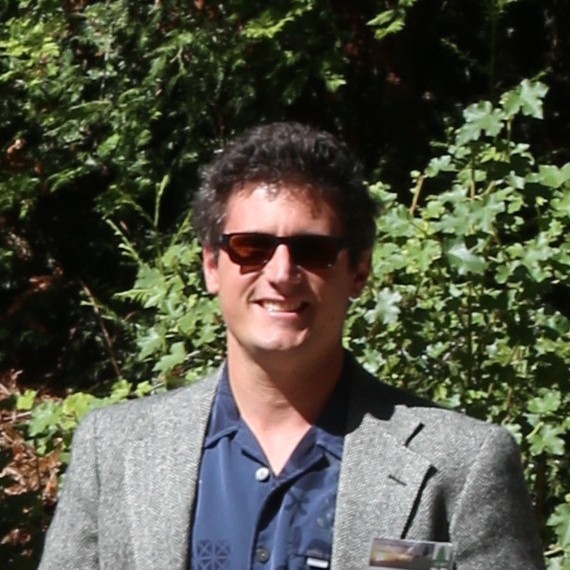
Simone Mazza (SCIPP)
I'm an assistant project scientist at the Santa Cruz Institute for Particle Physics (SCIPP) at University of California Santa Cruz (UCSC). My current physics research plan is mainly focused on the study of lepton flavor universality by the observation of rare pion decays, I’m very involved in an emerging pion decay experiment, the PIONEER experiment, that will run at the PiE-5 pion beamline at the Paul Scherrer Institut (PSI). For PIONEER, I’m developing the high granularity active target (ATAR). I'm also very interested in the physics at the Electron-Ion Collider (EIC) that is going to be built at Brookhaven national Laboratories (BNL). For the EPIC detector at EIC I'm leading on the silicon sensor development for the timing layer at UCSC. My expertise is silicon sensors and, in particular, ultra-fast silicon sensors known as low gain avalanche detectors (LGADs) that allow a timing resolution per hit down to 20 ps. In my free time, I love surfing and mountain biking in the beautiful Santa Cruz county.
Scientific Computing
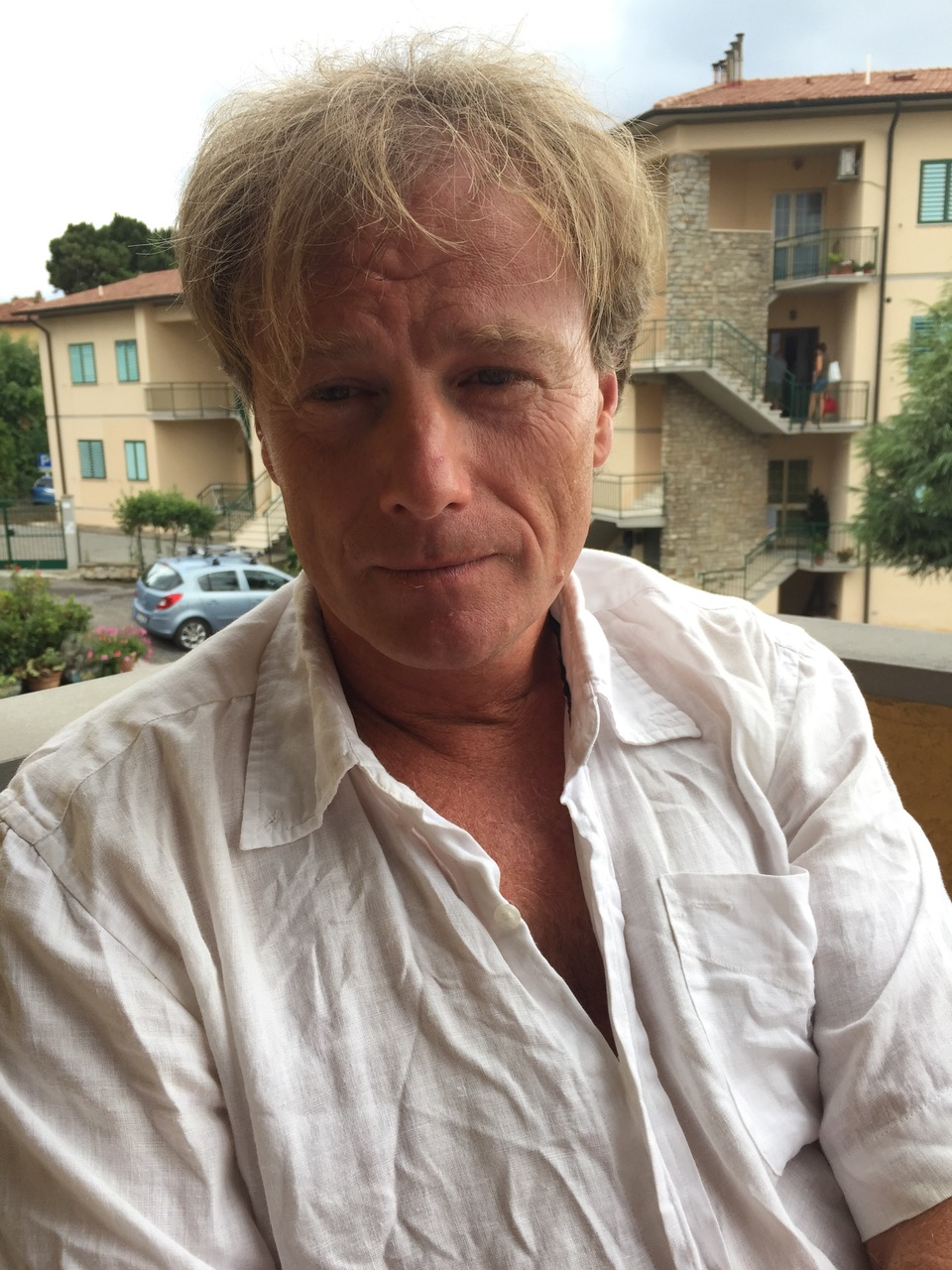
Morten Hjorth-Jensen (FRIB/MSU)
Morten Hjorth-Jensen is a professor of physics at the Facility for Rare Isotope Beams and in the Department of Physics and Astronomy of Michigan State University, as well as in the Physics Department of the University of Oslo, Norway. He received his Ph.D. in 1993 from the University of Oslo and has been on the faculty there since 2000, joining Michigan State University in 2012. He works with various methods for solving quantum-mechanical many-body problems from first principles, with a strong focus on many-body problems in nuclear physics, including both computational and mathematical aspects. Lately this involves Machine Learning and Quantum Computing algorithms as well.
Accelerator Physics

Hui Wen Koay (TRIUMF)
Hui Wen is a physicist graduated from Osaka University. Currently she is a postdoctoral researcher in the beam physics group at TRIUMF. Her research interests mainly centre around accelerator physics and beam physics. She enjoys the outdoors and food.

Philipp Kolb (TRIUMF)
Philipp Kolb is a SRF scientist at TRIUMF. He received his PhD from UBC in 2016. Afterwards he was a post-doc at Brookhaven National Laboratory working on early versions of the electron-ion collider. In 2018, he returned to TRIUMF as a post-doc and became a permanent employee in 2022.
Panelists - Sustainability of Accelerator Operation

Thomas Roser (Brookhaven National Laboratory)
Until his retirement in 2021, Thomas Roser was a Senior Scientist, Deputy Associate Laboratory Director for Accelerators and Chair of the Collider-Accelerator Department at Brookhaven National Laboratory with the responsibility for the operation of the Relativistic Heavy Ion Collider (RHIC). Most recently, among other things, Thomas is the Chair of the ICFA panel for sustainable accelerators and colliders and was chair of the Collider Implementation Task Force that provided input to Snowmass 2021 and the P5 process.

Kathryn Hayashi (TRIUMF Innovations)
Kathryn Hayashi is President and CEO of TRIUMF Innovations, the business interface and commercialization arm, connecting TRIUMF to the private sector via industry partnerships, licensing, and company creation. Ms. Hayashi is a Chartered Professional Accountant with more than 25 years of operational and strategic planning, finance and governance experience in not-for-profit organizations, public and private companies, start-ups, and commercialization accelerators/incubators.
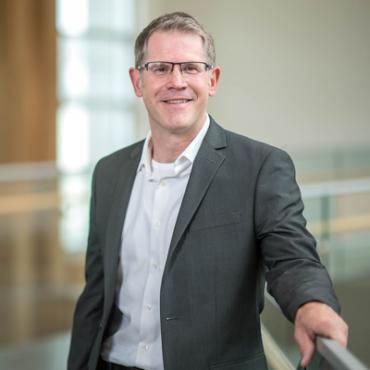
John Madden, Director Sustainability and Engineering (UBC)
John directs the activities of the Sustainability and Engineering unit of the UBC Campus and Community planning team. Sustainability and Engineering is responsible for developing policy on resource and infrastructure management plans, operational sustainability planning and reporting, creating sustainability engagement programs that empowers staff, faculty and students to make decisions that are aligned with the sustainability principles outlined in our 20-year Sustainability Strategy. John also oversees the development of green building policy and programs and engineering services for land use planning and permitting processes.

Marlene Turner (CERN)
Since 2023 Marlene is a research scientist at CERN as a plasma wakefield scientist. She is the experimental coordinator for the proton driven plasma wakefield experiement AWAKE and she is co-leading the working group developing input to sustainability for the next European Strategy for Advanced Accelerators. She received a US DOE High Energy Physics Early Career Research Award and has participated in the Snowmass Community Planning Process on the Implementation Task Force and Accelerator Frontier working group.

Thomas Planche (TRIUMF)
Thomas received his MSc in 2006 from the University of Grenoble (France), and his PhD in 2010 from Kyoto University (Japan). In Japan, he studied Accelerator Physics under the supervision of Prof. Yoshiharu Mori. He has been working at TRIUMF since 2011, and currently fulfils the roles of research scientist, facility coordinator of the ARIEL electron linac, and deputy Beam Physics Department Head. His research interests include: high-power accelerators (cyclotrons and linacs), beam dynamics simulations (with reduced models and/or structure-preserving algorithms), and accelerator magnet design.
Panelists - Collaborations with Indigenous Communities

Ira Aisaican (Cowessess First Nation Councillor)
I have worked in the public works sector my entire career, most recently (since 2005) in the water treatment area for Cowessess First Nation which is where I and my family reside. I am a level 2 certified water and wastewater operator who has mentored and trained other operators in neighboring First Nations to become certified.
I am currently a council member on our First Nation and the vice president of the Saskatchewan First Nation water association. In my spare time I enjoy fishing, hunting, and travelling.
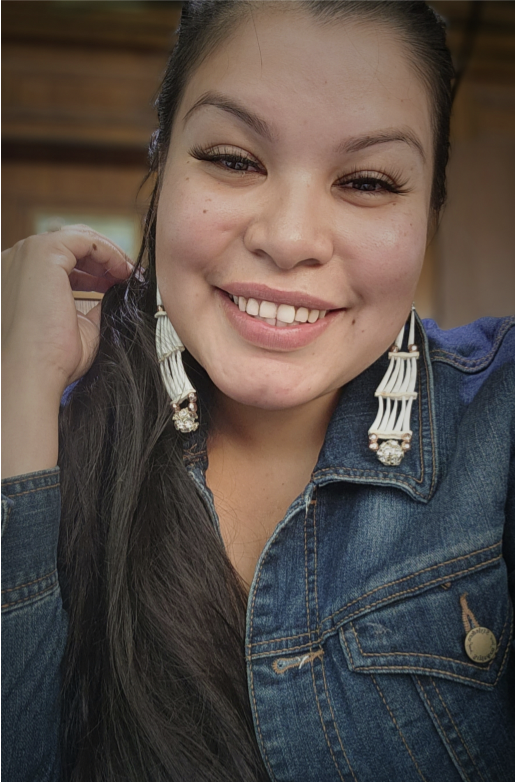
Jana Sasakamoose (Graduate Researcher at University of Regina)
She is a mother of 5 and stepmom to 2 and completing her Master of Science in Interdisciplinary Studies with concentrations on Mathematics and Statistics, Geographics and Social Justice at the University of Regina. She is the first ever First Nations woman accepted into the Math and Stats Graduate program and been breaking down barriers as an Indigenous mother through her entire education journey, and careers. Hailing from Ahtahkahkoop First Nation, she has vowed to use her education and ambition to ensure her kids never face the same hardships. Despite all she has gone through, she always finds a way to give back – whether it is volunteering or paying it forward to others by donating each time she receives a scholarship, she plans to uplift her community and break the cycles of trauma to create a better future for all Indigenous Peoples. Her thesis involves the ratio of food and utility expenses over the household income in First Nations communities and compare this number with the provincial and federal average. She is 29 years old and is currently in 3 different clean energy programs to solve some of the issues found in her research. The ImaGENation program - where it includes a solar powered greenhouse in her First Nations Community. The Project Accelerator program – retrofits on houses to make them more energy efficient for the elderly, families and the sick. The Student Energy Fellowship to learn more about clean energy projects around the world. She is currently on Maternity Leave from her position at the Indigenous Peoples Health Research Centre as an Indigenous Engagement & Research Specialist. She completed her Bachelor of Administration Degree at the First Nations University of Canada along with 3 other Certificates and business Diploma.
Arzu Sardarli (First Nations University Professor, Physics and Mathematics - Indigenous Knowledge & Science)
Dr. Sardarli joined the First Nations University of Canada in 2007. He led a number of community-based projects. Dr. Sardarli uses Indigenous elements in his teaching. He co-authored the first Cree Dictionary of Mathematical with elements of Indigenous Art. In 2008, Dr. Sardarli initiated a nationwide annual Wiseman Mathematics Contest. He coordinated the research project on mathematical modelling of water quality using Indigenous knowledge. Dr. Sardarli’s projects have been supported by agencies, such as NSERC, SSHRC, Health Canada, and Canadian Heritage. He received The Recognition Event Awards of The Regional Centre of Expertise (Saskatchewan) for his innovative Indigenous community-based projects.
Panelists - Careers opportunities in industry
.png)
Justine Munich (D-Pace)
Justine Munich completed her BSc with an Honours in Physics at UBC, and then enrolled at SFU to join the Antihydrogen Laser Physics Apparatus (ALPHA) Collaboration at CERN for graduate studies. She studied microwave spectroscopy of antihydrogen to probe CPT symmetry for about 5 years before the COVID-19 pandemic interrupted all carefully laid plans. Two years ago, she transitioned to a career in industry as a Sales and Marketing Manager and Physicist at D-Pace, a company that specializes in ion sources for physics accelerators.
.png)
Morgan Dehnel (D-Pace)
Morgan Dehnel obtained his PhD at UBC/TRIUMF 1990-1995 involving R&D associated with ion sources, injection lines and inflectors using the 1 MeV Test Cyclotron that was actually located near TRIUMF reception. This work was directed towards advancing the technology of small cyclotrons for medical radioisotope production. At that time TRIUMF was transferring technology to Ebco Technologies Inc. which is now Advanced Cyclotron Systems Inc (ACSI), and this PhD work directly impacted the TRPET cyclotron technology product. After graduation Dr. Dehnel founded Dehnel Consulting Ltd in Nelson, BC, Canada, and began to undertake consulting work in the area of commercial beamline design, and beamline component design around the world. In 2004 the company evolved into Dehnel – Particle Accelerator Components and Engineering, Inc (D-Pace) signifying that service work still continued (such as engineering and physics consulting), but that actual products (or components) such as ion sources, magnets, emittance scanners and target stations to name a few were now being developed, proto-typed and commercialized. D-Pace now has over 40 products available to the particle accelerator industry.
.png)
Andrew Robertson (BC Cancer)
Dr. Robertson is a clinical medical physicist at BC Cancer Vancouver specialising in radiation oncology physics. He received a PhD in physics from UBC in 2020 after conducting research at TRIUMF. In August 2023 he completes his radiation oncology physics residency training with BC Cancer and joins the Vancouver physics department as a permanent clinical physicist
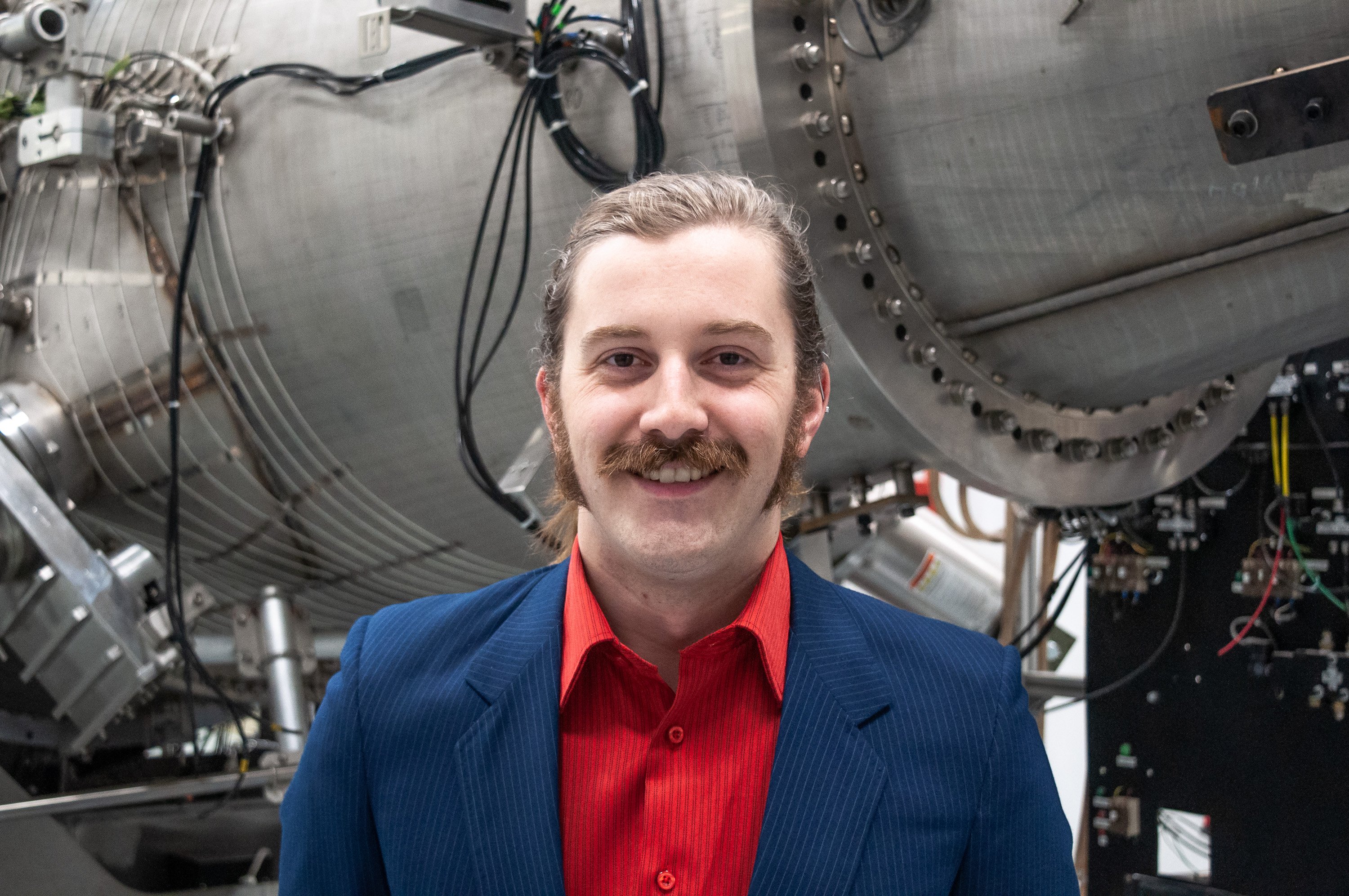
Myles Hildebrand (General Fusion)
Myles Hildebrand studied at McGill University, earning an M.Eng in Mechanical Engineering, working on an Implosion Driven Launcher that used explosives to push well-characterized projectiles to 10 km/s.Myles began working at General Fusion in 2016 on the development of a novel explosive plasma compression scheme. Following that, he has worked in many different areas of the company including neutron
diagnostics, Bayesian magnetic reconstruction and various other plasma diagnostics. Myles is now the Program Manager responsible for external collaborations with research institutions, national labs, and universities around the world.

